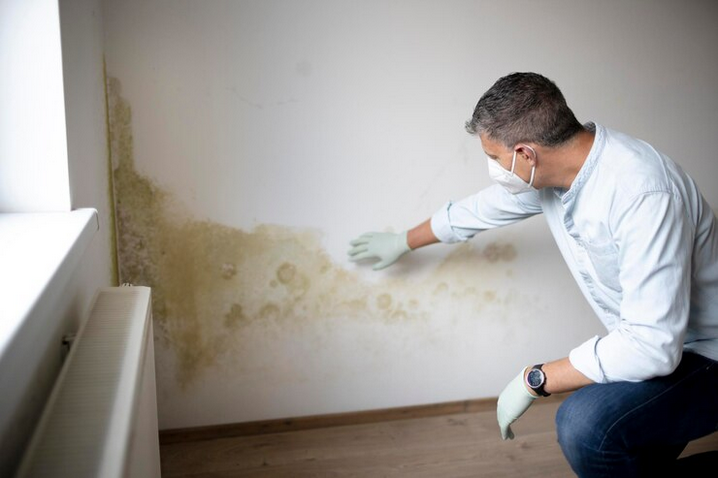Paint Contractors Near You: What You Should Expect

Hiring a paint contractor can be essential for transforming your home or business space. Whether you’re refreshing a single room or embarking on a full exterior repaint, understanding what to expect from a paint contractor can help you navigate the process smoothly. This guide will cover the key aspects to consider when hiring a paint contractor, what services they typically offer, and how to ensure you receive quality work.
1. Understanding the Role of a Paint Contractor
A paint contractor specializes in applying paint, stains, and finishes to various surfaces. Their work can significantly impact the aesthetics and durability of your property. Here are some common responsibilities of a paint contractor:
- Surface Preparation: This includes cleaning, sanding, and priming surfaces to ensure paint adheres properly.
- Color Consultation: Many contractors offer advice on color selection and finishes, helping you choose options that align with your vision.
- Application Techniques: Contractors are skilled in various application methods, including brushing, rolling, and spraying, to achieve the desired effect.
- Cleanup: A professional contractor will handle cleanup after the job is done, leaving your space neat and tidy.
2. Types of Painting Services Offered
When hiring a paint contractor, you can expect a range of services. Here are some common offerings:
Interior Painting
Interior painting involves applying paint to walls, ceilings, trim, and other surfaces inside your home or business. Key aspects include:
- Wall Preparation: This may involve patching holes, repairing drywall, and cleaning surfaces.
- Color Selection: Contractors can provide samples and guidance on color schemes.
- Finishes: You can choose from various finishes, including matte, eggshell, satin, semi-gloss, and gloss.
Exterior Painting
Exterior painting protects and enhances the look of your property. Key considerations include:
- Weather Resistance: Contractors use paints that withstand outdoor elements.
- Surface Preparation: This may include power washing, scraping, and priming surfaces.
- Finishing Touches: Trim, doors, and other elements often receive special attention.
Specialty Services
Many paint contractors also offer specialty services, such as:
- Texture Application: This includes techniques like stucco, knockdown, or popcorn texture.
- Staining and Sealing: For decks, fences, and other wooden structures, staining can enhance appearance and provide protection.
- Wallpaper Removal: Some contractors can assist with removing old wallpaper before painting.
3. What to Look for When Hiring a Paint Contractor
Finding the right paint contractor involves careful consideration. Here are some essential factors to keep in mind:
Licensing and Insurance
Ensure that the contractor is licensed and insured. A valid license indicates that they meet local regulations and standards. Insurance protects you from liability in case of accidents or damages during the project.
Experience and Expertise
Ask about the contractor’s experience and areas of expertise. A contractor with several years of experience is likely to have encountered various challenges and learned effective solutions.
Portfolio of Work
Request to see a portfolio showcasing previous projects. This will give you a sense of their style and quality of work. Look for consistency in their finishes and attention to detail.
Customer Reviews and References
Online reviews can offer insights into a contractor’s reputation. Additionally, ask for references from previous clients and follow up with them to gain a better understanding of the contractor’s work ethic and reliability.
4. The Estimation Process
Once you’ve narrowed down potential contractors, the next step is to get estimates. Here’s what you can expect during the estimation process:
Initial Consultation
Most contractors will conduct an initial consultation to assess your project. They will review the areas to be painted, discuss your color preferences, and take measurements.
Detailed Estimate
A reputable contractor will provide a detailed written estimate that includes:
- Cost Breakdown: This should outline labor, materials, and any additional fees.
- Project Timeline: An estimated start and completion date.
- Payment Terms: Understand how and when payments will be made.
Transparency
A good contractor will be transparent about their pricing and processes. If something is unclear, don’t hesitate to ask for clarification.
5. Preparing for the Project
Once you’ve selected a contractor, preparation is key to ensuring a smooth painting process. Here’s what to consider:
Clear the Space
For interior projects, remove furniture, wall décor, and any items that may obstruct the work area. This allows the contractor to work efficiently and minimizes the risk of damage to your belongings.
Discuss Working Hours
Communicate your preferences regarding working hours. Some homeowners may prefer work to be done during the day, while others might require evening or weekend hours.
Address Any Concerns
If you have specific concerns about the project, such as allergies to paint fumes, discuss these with your contractor in advance. They can recommend low-VOC (volatile organic compound) paints or alternative solutions.
6. The Painting Process
Understanding what goes on during the painting process can help set your expectations. Here’s a general outline:
Surface Preparation
The contractor will begin by preparing the surfaces to be painted. This includes cleaning, sanding, and filling holes or cracks. Proper preparation is crucial for achieving a long-lasting finish.
Priming
For certain surfaces, especially new drywall or when making drastic color changes, a primer may be applied. Primer helps the paint adhere better and enhances the final color.
Painting
The contractor will then apply the paint using the chosen method (brush, roller, or spray). Depending on the type of paint and the surface, multiple coats may be necessary.
Final Touches
After the main painting is complete, the contractor will address any touch-ups needed and ensure that edges and trim are neatly painted.
7. Post-Project Cleanup
A professional paint contractor will typically handle cleanup after the project. This includes:
- Removing Drop Cloths: All protective coverings should be removed.
- Cleaning Tools: Brushes, rollers, and other tools should be cleaned properly.
- Disposing of Debris: Any leftover paint, materials, or debris will be removed.
8. Final Inspection
Once the work is complete, conduct a final inspection of the project with your contractor. Check for any missed spots, drips, or imperfections. Discuss any concerns immediately so that they can be addressed before final payment.
9. Warranty and Aftercare
Many reputable paint contractors offer warranties on their work. This can cover any peeling, cracking, or fading that occurs within a specified timeframe. Be sure to ask about the warranty terms and what they cover.
Additionally, inquire about aftercare tips to maintain the paint job. Proper maintenance can extend the life of your paint and keep your space looking fresh.
Conclusion
Hiring a paint contractors near me can transform your living or working space, but understanding what to expect is crucial for a successful outcome. From the initial consultation and estimation process to the final inspection and aftercare, being informed can help you navigate the complexities of hiring a contractor.
By focusing on key aspects such as experience, customer reviews, and clear communication, you can find a contractor who meets your needs and delivers quality work. With the right contractor, your painting project can enhance the beauty and value of your property for years to come.







